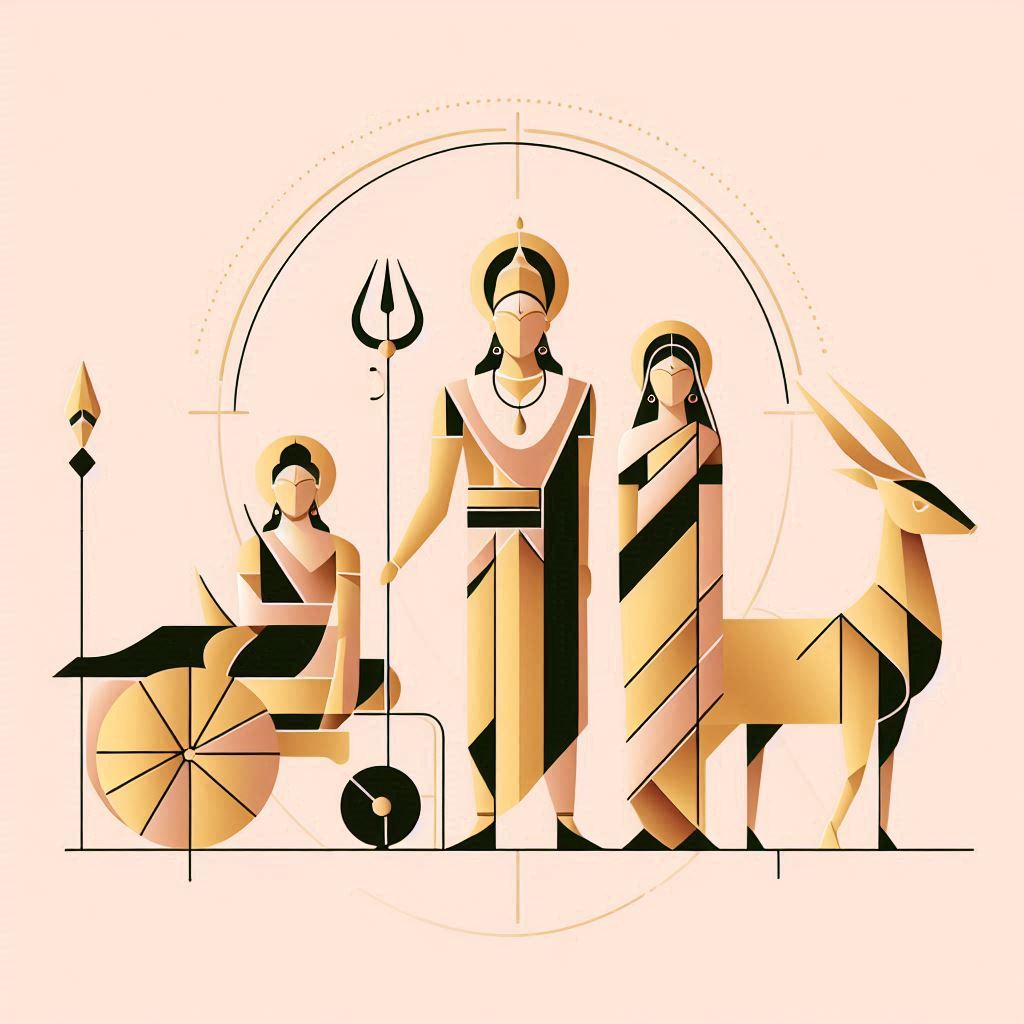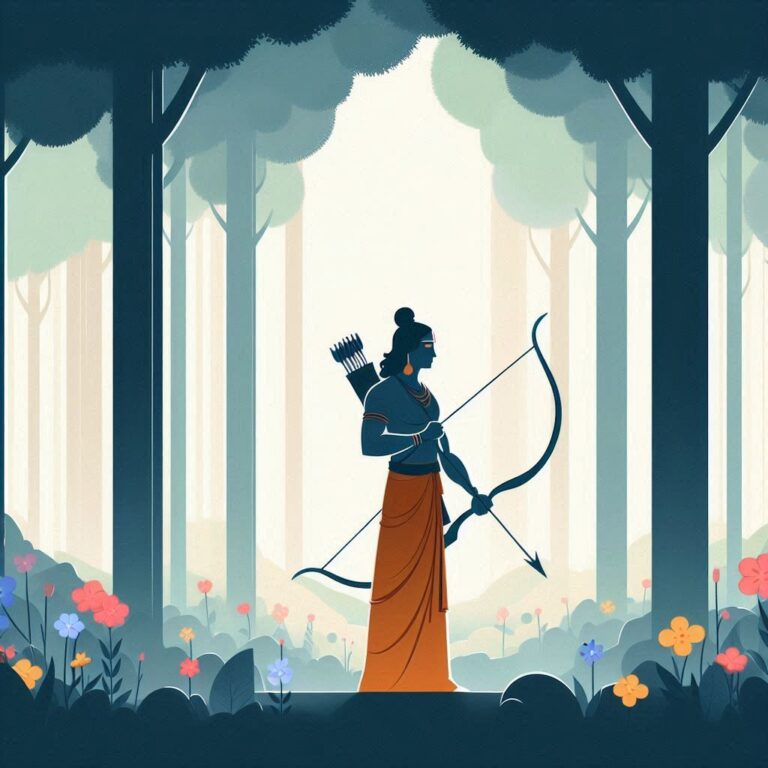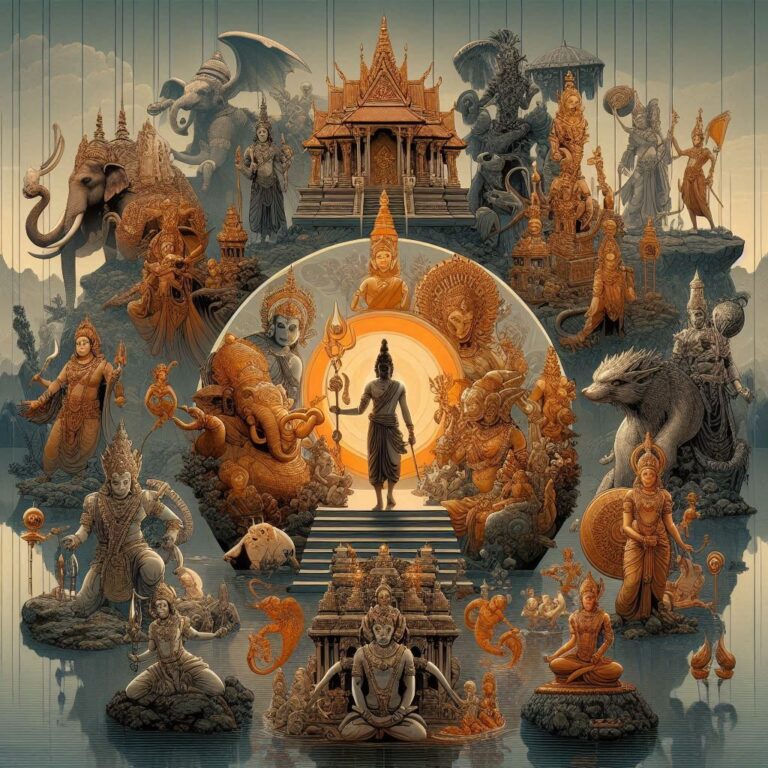Profound Moral Lessons and Ethical Insights from the Ramayana
Moral and Ethical Lessons from the Ramayana
When you think about timeless epics, the Ramayana certainly pops into mind. This ancient text doesn’t just serve as a riveting tale of heroism, love, and adventure; it’s packed with profound moral and ethical lessons that resonate even today. Whether you’re sipping chai at a cozy corner café or diving deep into discussions on morality with friends, the lessons from Ramayana can often come up. Have you ever paused to wonder what makes these lessons so significant in our lives? Well, let’s unpack some of these insightful gems together!
The Essence of Dharma
One of the most crucial themes in the Ramayana is Dharma, or righteousness. The characters exemplify what it means to live a life of duty and moral integrity. Take Lord Rama, for example. He is often referred to as “Maryada Purushottama,” meaning the ideal man. His unwavering commitment to his dharma influences his choices throughout the epic.
What Does Dharma Mean?
To break it down simply, Dharma is like your personal compass, guiding you through life’s labyrinth. It can change based on your situation, roles, and responsibilities—talk about a flexible concept!
- For Rama: His dharma as a prince means obeying his father’s wishes, even when it leads to exile.
- For Sita: Her dharma emphasizes loyalty and virtue, regardless of the challenges she faces.
Wouldn’t it be amazing if we could all find our own dharma and stick to it so steadfastly?
A Shloka to Reflect On
Let’s dive into some verses reflecting this theme of dharma.
श्लोक:
धर्मपत्नी तु पत्युः प्राणैर्यथा च युज्यते।
धर्मवीर्यपत्यास्य मम कुरु धनञ्जय।।
Transliteration:
Dharmapatnī tu patyuḥ prāṇairyathā ca yujyate.
Dharmavīryapatyāsya mama kuru Dhananjaya.
Translation:
A wife is as dear as life to her husband; so do what is virtuous, O Dhananjaya!
This shloka beautifully illustrates the importance of dharma in personal relationships. It reminds us that our roles and responsibilities towards each other matter immensely!
The Power of Sacrifice
Sacrifice is another powerful aspect depicted in the Ramayana. Whether it’s Rama giving up his kingdom for his father or Sita stepping into fire to prove her purity, the characters demonstrate that true love and commitment often require sacrifices.
Why Is Sacrifice Important?
Think of sacrifice as the anchor in the stormy sea of relationships. It often defines our growth and deepens our connections with others.
- The Significance for Rama: His exile illustrates the sacrifices we must make for the greater good.
- For Sita: Her trials in Lanka accentuate her steadfast love and fidelity.
An Insightful Doha
One can reflect on this theme through the following doha:
दोहा:
परहित सरिस धर्म नहिं भाई,
परपीड़ा सम नहिं अखिल जग माही।।
Transliteration:
Parahita sarisa dharma nahin bhāi,
Parapīḍā sama nahin akhila jag māhī.
Translation:
There is no dharma greater than the welfare of others; no pain compares to the pain of others in this whole world.
This doha summarizes the essence of sacrifice beautifully; it’s not merely about giving something up but extending oneself for the greater good.
Loyalty and Friendship
What’s friendship without loyalty, right? The bond between Rama and Lakshmana exemplifies unparalleled brotherhood and loyalty. Lakshmana’s decision to leave everything behind to follow Rama into exile is a classic testament to this virtue.
How Do We Practice Loyalty in Our Lives?
Loyalty is a glue that binds relationships and fuels teamwork. It’s like having a spirit animal that inspires devotion and support through thick and thin.
- Lakshmana’s unyielding support: He embodies the essence of brotherhood, standing by Rama through every trial.
- Hanuman’s dedication: The monkey god’s unwavering devotion to Rama showcases loyalty surpassing the boundaries of kinship.
A Beautiful Shloka Reflecting Loyalty
श्लोक:
सर्वेषां मध्यमत्वस्य धर्मोऽस्ति च गामः।
भक्तिर्वै नमः सर्वेण विना कथं सर्जते।।
Transliteration:
Sarveṣāṃ madhyatvasyā dharmo’sti ca gāmaḥ.
Bhaktiḥ vai namaḥ sarveṇa vinā kathaṃ sarjate.
Translation:
In every relationship, there is a duty, and grace emerges through loyalty—how can it thrive without devotion?
This shloka beautifully encapsulates how loyalty nurtures relationships, urging us to prioritize unwavering support.
The Importance of Truth
Ah, the timeless lesson of truth! In the Ramayana, truth is depicted as a virtue that stands tall, even amidst adversity. Rama’s determination to uphold truth, even when it leads to personal suffering, speaks volumes about his character.
How Do We Uphold Truth in Our Lives?
Embracing truth can sometimes feel like walking a tightrope. It’s challenging, but it builds trust and respect.
- Rama’s commitment to truth: His decision to banish Sita highlights the weight of adhering to principles, albeit with a heavy heart.
- The consequences of lying: The treachery of Ravana reveals that deceit ultimately leads to demise.
A Thought-Provoking Doha
Here’s a thoughtful doha on truth:
दोहा:
सत्यं ब्रह्म सत्यं विश्वं,
सत्ये सन्ति सुखानि।।
Transliteration:
Satyaṃ brahma satyaṃ viśvaṃ,
Satyē santi sukhāni.
Translation:
Truth is the ultimate reality; happiness resides in truth.
This doha underscores the centrality of truth in realizing genuine happiness in life.
Forgiveness and Compassion
Forgiveness is a virtue that many struggle with, but it’s at the heart of many teachings in the Ramayana. Despite the immense pain caused by Ravana’s actions, Rama demonstrates compassion in the face of adversity.
How Can We Practice Forgiveness?
Forgiveness can feel like carrying a heavy backpack—you know you should lighten the load, but somehow it feels easier to bear.
- Rama’s decision not to kill Vibhishana: It shows that even enemies can have redeeming qualities.
- Sita’s forgiveness: Despite her ordeal, she embodies the essence of compassion and resilience.
A Shloka on Forgiveness
श्लोक:
क्षमा वीरस्य भूषणा।
त्यागात् पुण्यं प्राप्नुयात्।।
Transliteration:
Kṣamā vīrasya bhūṣaṇā.
Tyāgāt puṇyaṃ prāpnuyāt.
Translation:
Forgiveness adorns the brave; through sacrifice, one attains virtue.
The shloka reminds us that true courage lies in the ability to forgive, a vital lesson in maintaining our peace and happiness.
Conclusion
So, what’s the takeaway from this epic narrative? The Ramayana teaches us that life is much like a twisty road with hills and valleys. It’s our duty to embrace dharma, value sacrifice, uphold truth, nurture loyalty, and embody forgiveness. Wouldn’t the world be a much better place if we all took these lessons to heart?
Each character serves as a mirror reflecting aspects of our lives, challenging and inspiring us to become better individuals. So, the next time you think of the Ramayana, remember that the true essence of this epic lies not just in its grand tales but in the quiet moral lessons that guide us even today.
FAQs
-
What is the core message of the Ramayana?
The Ramayana primarily conveys the importance of dharma, or righteousness, through its characters and their choices. -
How does the Ramayana define sacrifice?
Sacrifice in the Ramayana showcases the willingness to give up personal comforts for the greater good and welfare of loved ones. -
What role does loyalty play in the Ramayana?
Loyalty serves as a major theme, often illustrated through the unwavering support among characters, especially between Rama and Lakshmana.
-
Is forgiveness really encouraged in the Ramayana?
Yes, forgiveness is a significant lesson, demonstrated in the way Rama and Sita handle their trials with compassion and empathy. -
Why is truth considered vital in the Ramayana?
Truth is depicted as a crucial virtue, emphasizing that adherence to honesty leads to integrity and ultimately to happiness.







